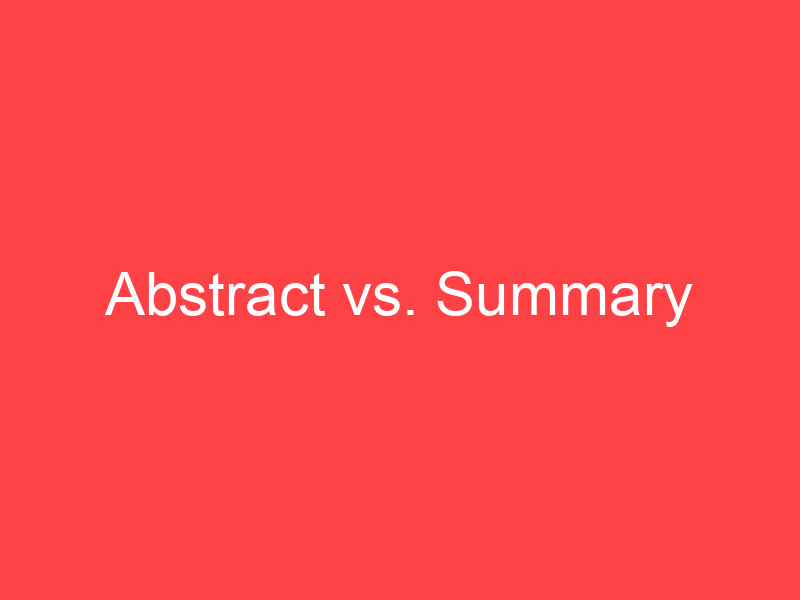-
Abstract (noun)
An abridgement or summary of a longer publication. First attested around 1350 to 1470.page=10
-
Abstract (noun)
Something that concentrates in itself the qualities of a larger item, or multiple items. First attested in the mid 16th century.
-
Abstract (noun)
Concentrated essence of a product.
-
Abstract (noun)
An abstract term; that which is abstract. First attested in the mid 16th century.
-
Abstract (noun)
The theoretical way of looking at things; something that exists only in idealized form. First attested in the early 17th century.
-
Abstract (noun)
An abstract work of art. First attested in the early 20th century.
-
Abstract (noun)
A summary title of the key points detailing a tract of land, for ownership; abstract of title.
-
Abstract (adjective)
Derived; extracted. Attested from around 1350 to 1470 until the late 15th century.
-
Abstract (adjective)
Drawn away; removed from; apart from; separate. First attested around 1350 to 1470.
-
Abstract (adjective)
Expressing a property or attribute separately of an object that is considered to be inherent to that object. First attested around 1350 to 1470.
-
Abstract (adjective)
Considered apart from any application to a particular object; not concrete; ideal; non-specific; general, as opposed to specific. First attested around 1350 to 1470.
-
Abstract (adjective)
Difficult to understand; abstruse; hard to conceptualize. First attested around 1350 to 1470.
-
Abstract (adjective)
Absent-minded. First attested in the early 16th century.
-
Abstract (adjective)
Pertaining to the formal aspect of art, such as the lines, colors, shapes, and the relationships among them. First attested in the mid 19th century.
-
Abstract (adjective)
Free from representational qualities, in particular the non-representational styles of the 20th century. First attested in the mid 19th century.
-
Abstract (adjective)
Absolute.
-
Abstract (adjective)
Insufficiently factual.page=8
-
Abstract (adjective)
Apart from practice or reality; vague; theoretical; impersonal; not applied.
-
Abstract (adjective)
As a noun, denoting an intangible as opposed to an object, place, or person.
-
Abstract (adjective)
Of a class in object-oriented programming, being a partial basis for subclasses rather than a complete template for objects.
-
Abstract (verb)
To separate; to disengage. First attested around 1350 to 1470.
-
Abstract (verb)
To remove; to take away; withdraw. First attested in the late 15th century.
-
Abstract (verb)
To steal; to take away; to remove without permission. First attested in the late 15th century.
-
Abstract (verb)
To summarize; to abridge; to epitomize. First attested in the late 16th century.
-
Abstract (verb)
To extract by means of distillation. Attested from the early 17th century until the early 18th century.
-
Abstract (verb)
To consider abstractly; to contemplate separately or by itself; to consider theoretically; to look at as a general quality. First attested in the early 17th century.
-
Abstract (verb)
To withdraw oneself; to retire. First attested in the mid 17th century.
-
Abstract (verb)
To draw off (interest or attention).
“He was wholly abstracted by other objects.”
-
Abstract (verb)
To perform the process of abstraction.
-
Abstract (verb)
To create abstractions.
-
Abstract (verb)
To produce an abstraction, usually by refactoring existing code. Generally used with “out”.
“He abstracted out the square root function.”
-
Summary (adjective)
Concise, brief or presented in a condensed form
“A summary review is in the appendix.”
-
Summary (adjective)
Performed speedily and without formal ceremony.
“They used summary executions to break the resistance of the people.”
-
Summary (adjective)
Performed by cutting the procedures of a standard and fair trial.
“Summary justice is bad justice.”
-
Summary (noun)
An abstract or a condensed presentation of the substance of a body of material.

